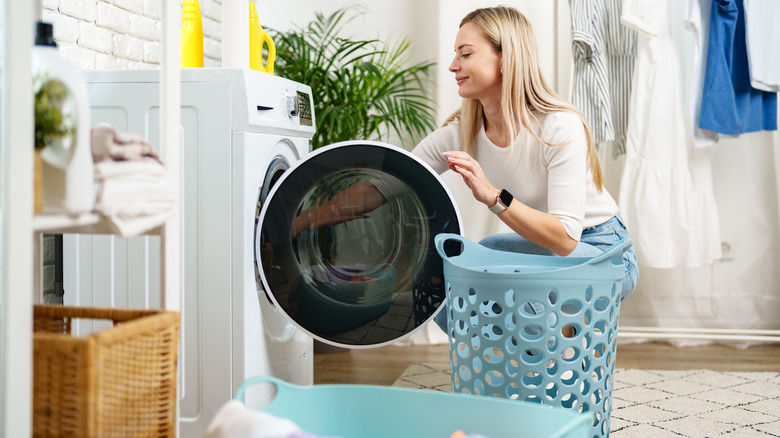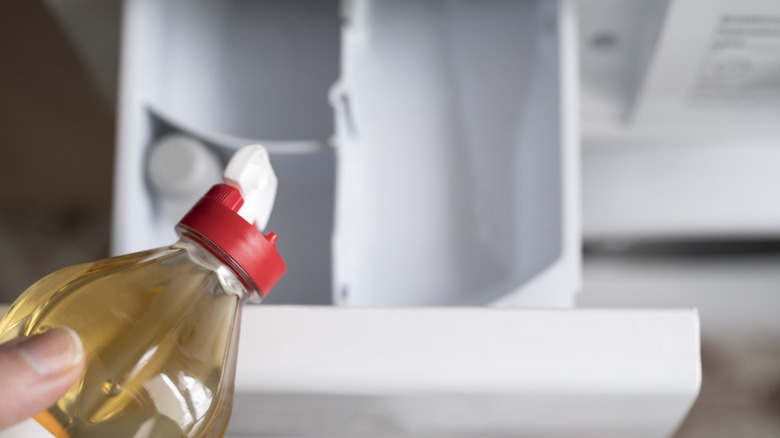Is Your Cleaning Routine Slowly Ruining Your Expensive Appliances?
Vinegar is one liquid that finds its way into so many preparations in our homes. You can find this handy little liquid in everything from an ingredient in cooking recipes to being used in gardens as an herbicide. It is also a versatile cleaning tool that's generally eco-friendly and widely used for DIY cleaning hacks. Many homeowners also use it as a go-to solution for cleaning their washing machines and dishwashers. But what if this common cleaning hack is actually doing more harm than good?
The effects of vinegar on your dishes and laundry are usually great, as it cuts through residue, stains, and odors with ease. However, this is not the best choice for your appliances. Whether you use vinegar to clean them or clean with them, you might end up with squeaky clean machines that don't work quite as well as they used to.
Vinegar is an acid, and while this acidity is great for dissolving mineral deposits in your dishwasher or washing machine, its prolonged use can also corrode the very components that keep them running smoothly. Citric acid is (of course!) still an acid, so your machines aren't 100% safe with it either. You're better off using commercial cleaners suggested by the manufacturer, or just baking soda alone.
How vinegar damages your precious appliances
Your washing machine relies on rubber gaskets and seals to keep them watertight, but consistently using vinegar in your laundry can cause the acid to eat through your machine's seals. That leaves you with a leaky and less efficient washing machine, which can make you dread laundry days until you cough up the money to fix it.
That damage to your rubber gaskets and seals doesn't simply show up as leaks. It can also allow water to get beyond the seal and collect in the nooks and crannies of your machine, leading to unpleasant odors or even mold and mildew growth. You probably already know that mold can cause your clothes to discolor and pick up odors that are difficult to get rid of. If left unchecked, it can also clog your machine's drainage and damage internal components. Here's an even sadder part: Black mold can eat away your rubber seal some more, damaging it further and causing more water leakage.
This is also the case with dishwashers. Once the rubber seals on your dishwasher start degrading, you'll need to have a mop handy whenever you want to wash your dishes, which is less than ideal. Vinegar can also cause your dishwasher's metal components to corrode and discolor if it comes in contact with salt in the machine. You really can't rinse away every single speck of salt from your dirty dishes before placing them in your dishwasher, so both your machine and metal dishware are in danger. While vinegar makes an excellent cleaner, be mindful of how much, and where, you're using it to help keep your appliances in top shape.

